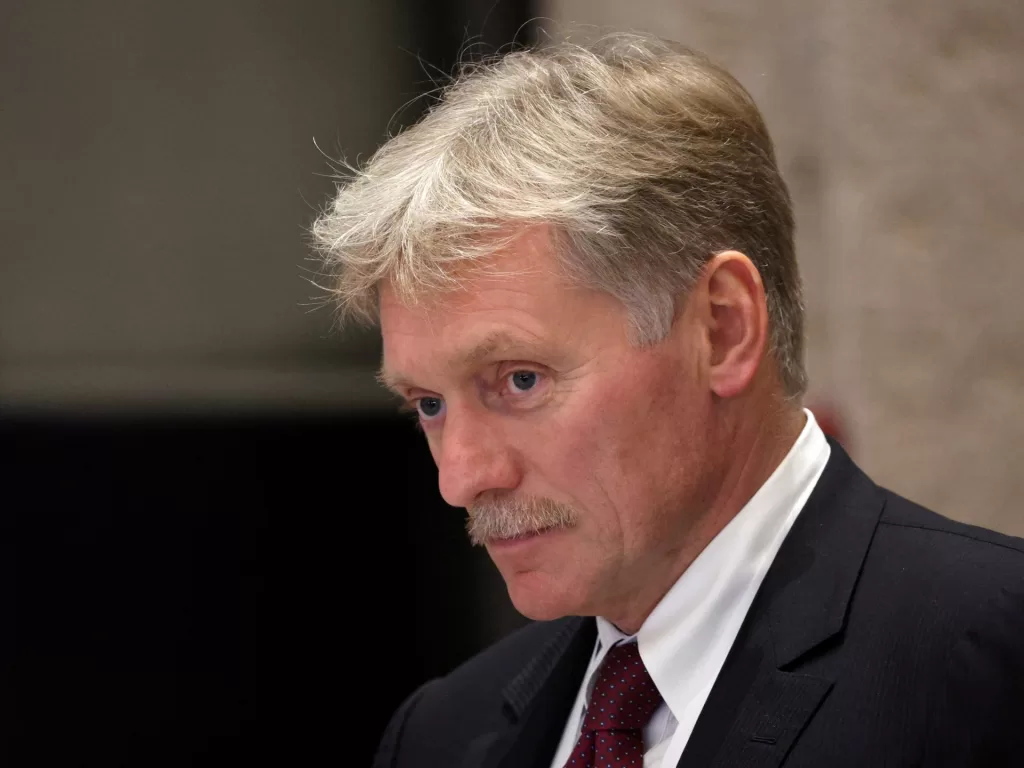The Kremlin has for two years referred to its invasion of Ukraine as a ‘special military operation’, not a war.
So far, the Kremlin has insisted that the attack on Ukraine ordered on February 24, 2022, was only as a “special military operation” to ensure the “demilitarisation and denazification” of Russia’s neighbour. This term implied that the operation had a limited scope, while the use of the broader term “war” was effectively banned.
“We are in a state of war. Yes, it started out as a special military operation, but as soon as this group was formed, when the collective West became a participant in this on the side of Ukraine, it became a war for us,” Kremlin spokesperson Dimitry Peskov told Arguments and Facts, a weekly newspaper based in the country.
“I am convinced of that. And everyone should understand this, for their internal motivation.”
Peskov’s comments came five days after Russian President Vladimir Putin was re-elected for six more years and after what Kyiv said was Russia’s largest air raid on Ukrainian energy infrastructure.
The remarks appeared to signal that Russia was digging in for an even longer standoff over Ukraine with the United States and its allies.
Russian officials have gradually also started to use the word “war” more often, having conceded that fighting is now set to go on for longer than initially thought.
But the Kremlin’s change of language on its military actions in Ukraine gives the Russian authorities more leeway with their own people to announce decisions more commonly associated with a war, such as a further mobilisation, according to analysts.
“Now it’s official: the SMO (Special Military Operation) is recognised as a war,” Tatiana Stanovaya, founder of the R.Politik analysis firm told the Reuters news agency.
“Of course, the SMO de facto became a war a long time ago But this is a certain psychological boundary, beyond which different requests can be made of both the population and the elites than during the SMO,” she added.
Mark Galeotti, author of several books on Putin and Russia, shared a similar view on the social media platform X.
“That ‘internal mobilisation’ is actually the key thing: the Kremlin’s demand that every Russian get into a wartime mindset, and realise there is now no middle ground between being a patriot and a traitor (as Putin defines these).”
And that ‘internal mobilisation’ is actually the key thing: the Kremlin’s demand that every Russian get into a wartime mindset, and realise there is now no middle ground between being a patriot and a traitor (as Putin defines these). 6/
— Mark Galeotti (@MarkGaleotti) March 22, 2024
Peskov, in subsequent remarks to reporters, clarified that Russia’s actions in Ukraine were still legally qualified at home as “a special military operation” rather than as a war.
“But de facto, it has become a war for us as the collective West more and more directly increases its level of involvement in the conflict,” he said.
Russia still occupies almost a fifth of Ukraine, including Crimea, which it illegally annexed in 2014.
Tens of thousands of people, including many civilians, have been killed in the fighting on the ground, as well as by continuing Russian attacks using missiles and drones.
Peskov stressed that Russia must fully “liberate” its “new regions” to ensure people’s safety there, a reference to the four Ukrainian regions – Donetsk, Kherson, Luhansk and Zaporizhia – which Russia claimed to have annexed in 2022 but does not fully control.
Russia, he added, could not allow a state to exist on its borders that had shown itself ready to use any method to seize control of Crimea.
Meanwhile, Kyiv says Russia’s annexation of the four regions is an illegal land grab and is also determined to return the Black Sea Peninsula of Crimea, which Russia took in 2014.
